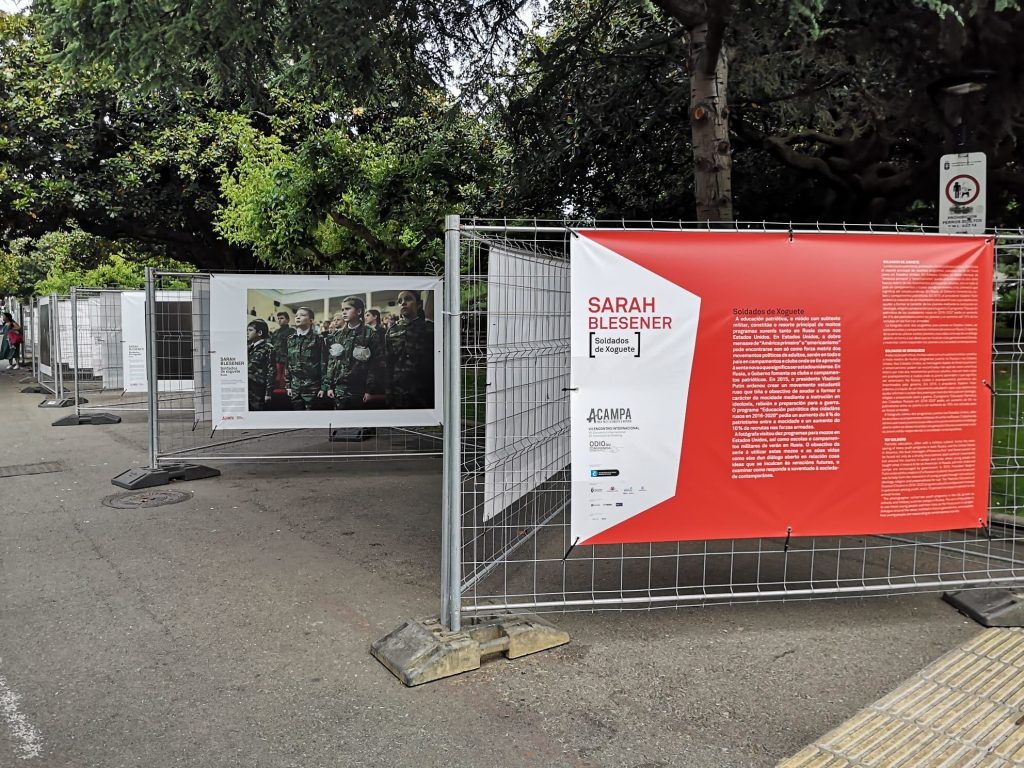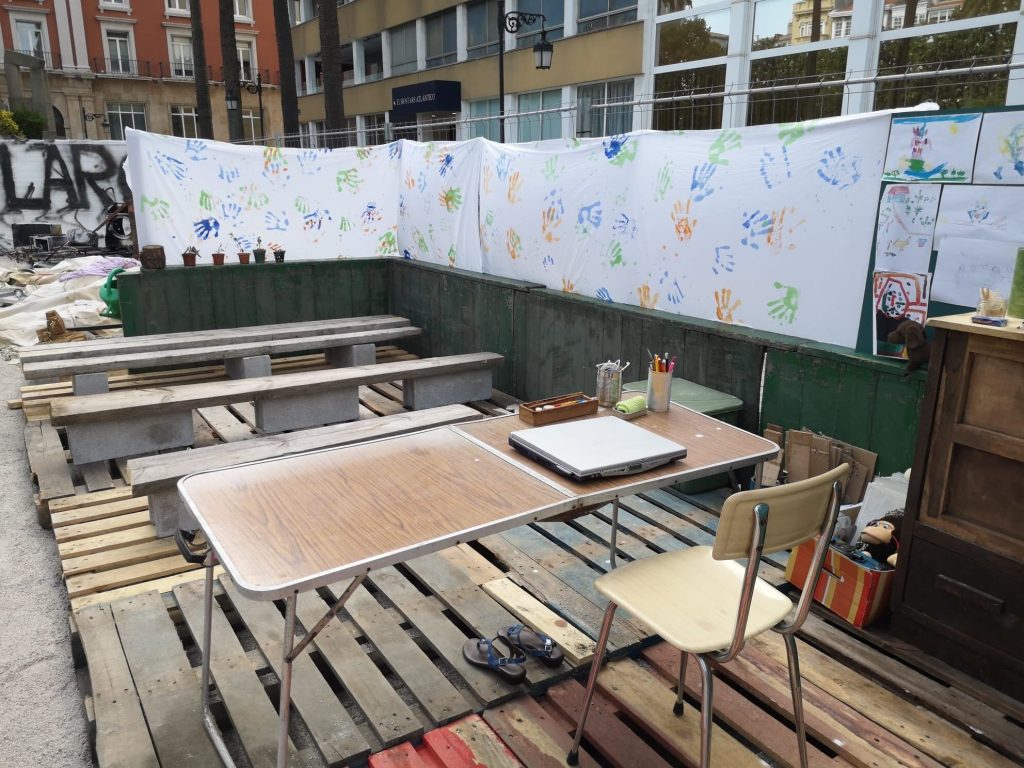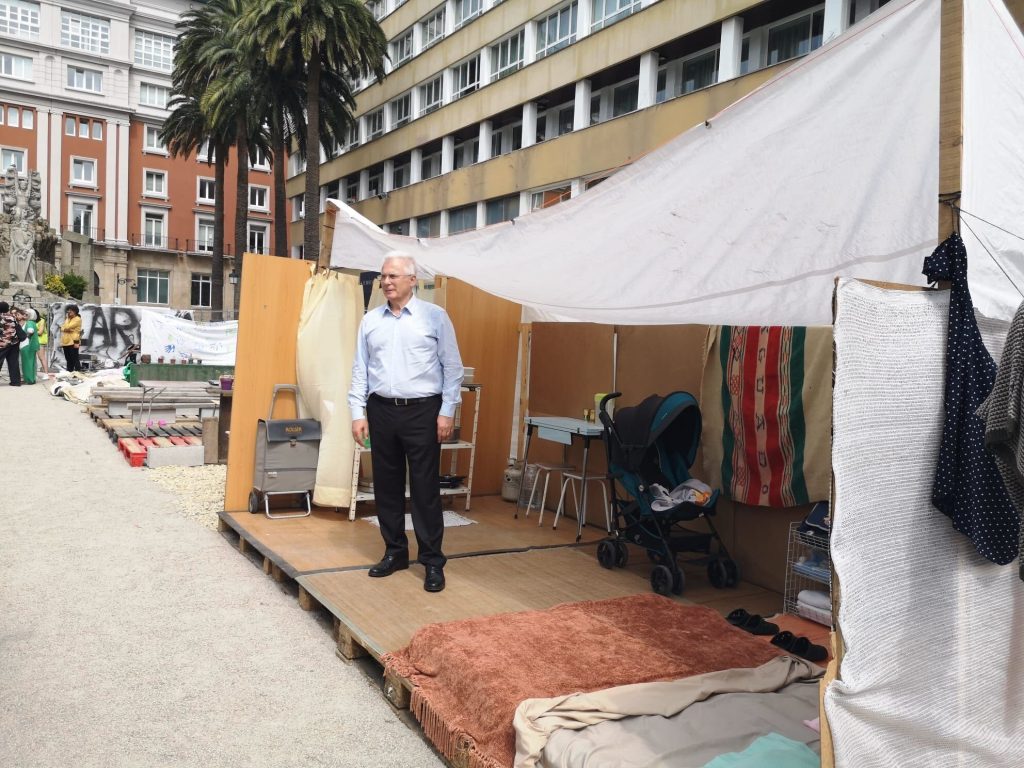
Chronicles of struggles against hatred: ACAMPA for peace and the right to shelter
In recent years, a discourse based on racism, xenophobia, intolerance, ethnocentrism, discrimination, inequality, exclusion, marginalization and criminalization against this sector of the population, aimed at the construction of the Other understood as a danger, as an enemy, has been growing stronger.
Recurrent targets of hate speech are national, ethnic, religious or linguistic minorities, already vulnerable communities, which become more stereotyped and discriminated against.
Among them stand out migrants and refugees, i.e. those who have to flee and flee, seeking refuge. Invisible nomads who move from their territory of origin, crossing territories and borders in order to survive, even if it means losing their lives in the attempt. Forced to leave their place of origin by famine, war or post-war, poverty, misery, lack of well-paid employment, natural disasters where they lose what little they had, resource-based conflicts that cross borders, shaped by a mosaic of local, regional and international interests, fueled by extremism, criminal networks and urban gangs, ethnic and religious differences.
As in a vicious circle, the rise of political populism and legislation characterized by increasing restrictions on the right to migration and asylum have contributed to the construction of a collective phobia that exposes the banality of the evil of our times.
All this obliges us to promote and encourage collective actions aimed at promoting peace, democracy and human rights.


Therefore, last week, in correspondence with the celebration of two relevant international days, the International Day against Hate Speech (June 19) and World Refugee Day (June 20), we participated in the VII International Meeting organized by Acampa for Peace and Refuge in A Coruña (Galicia).
Acampa is a citizens’ initiative that brings together nearly 60 organizations, including FIBGAR, with the aim of promoting a network of information, exchange of ideas and initiatives for the defense of human rights, International Humanitarian Law and the Right to Refuge.
This seventh edition was held under the slogan “Hate or Coexistence” with the aim of bringing citizens closer to a collective reflection on the social impact of international conflicts and the reality of refugees.


Among the various activities proposed, the program included the simulation of a refugee camp and the Melilla fence almost a year after what happened on June 24, 2022 when, in the attempted jump of about 2000 people through the border crossing of Barrio Chino in Melilla, abusive behavior by law enforcement on either side of the wall produced a massacre in which 37 people died, 77 disappeared and 430 were returned in the heat of the moment. A human tragedy documented by photographer Javier Bernando, present at the time of the events, and recounted by Virginia Alvarez, who piloted Amnesty International Spain’s investigation into what happened.
Through the photographs of Oscar Corral and the story of Virginia Mielgo, coordinator of the rescue ship Geo Barents of Doctors Without Borders, the participants reflected on the human rights violations that take place daily in the Central Mediterranean, the first European supranational liquid cemetery, and the harassment suffered by the rescue ships.
In two keynote speeches, the former president of Uruguay, Pepe Mújica, and our president, Baltasar Garzón, reflected on hate as a political weapon and universal justice as a tool for overcoming hate speech, respectively. Both recalled that, as history has always shown us, hate speech combined with disinformation can lead to stigmatization, discrimination and large-scale violence.


This year marks the 78th anniversary of the liberation of Auschwitz-Birkenau, where brutal and abominable crimes were committed, where “man and the idea of man died,” as Nobel Peace Prize laureate Elie Wiesel put it. However, it would seem that there were no lessons learned after the widespread state-sponsored ideology of hatred, persecution and murder perpetrated by the Nazi party and its collaborators. Nor have we learned from what happened, for example, during the Latin American dictatorships of the 20th century.
Initiatives such as Acampa’s international meetings remind us that words kill. Words kill like bullets. And in these cases the victims are all of us, because the damage is done to the whole community, and makes us “universal victims”.
Madrid, 19 / 06 / 2023



